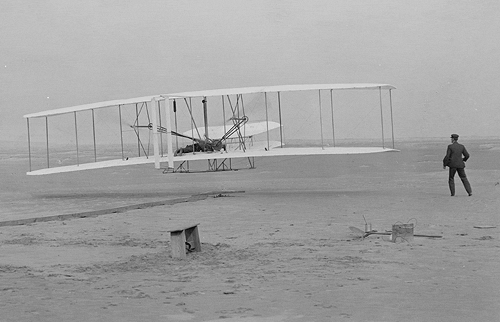Archive for the ‘Fear’ Category
Do Magical Work
 We are responsible for our actions, for what we do, for our work, and others are responsible for their response to it. (That’s why they call it responsibility.) Though we know we can’t control others, we still snare ourselves in worry trap: What will they think? Will they like it? What will they say?
We are responsible for our actions, for what we do, for our work, and others are responsible for their response to it. (That’s why they call it responsibility.) Though we know we can’t control others, we still snare ourselves in worry trap: What will they think? Will they like it? What will they say?
Worse than the worry trap, however, is when we actually change our work based on what others will think. A big no-no. We’re asked to do the work because we’re talented, we’re uniquely qualified, we’re the experts. Why do we let opinions of others wield so much power? Who cares what they say. We will let our work speak for itself.
There’s not much in life we have control over, but work is one of them. We control most everything about it: the what and how, the caliber, the tenor. We choose to do marginal work, average work, great work, or magical work. It’s our choice. We choose. When we chose to do magical work, its voice powerful enough to drown out the less capable, the politically motivated, and the CEO.
So go do magical work. Do work so good you don’t remember how you did it, so good you don’t think you could do it again, so good it scares you. But be ready – magical work, by definition, is misunderstood.
What will they say about your magic? It doesn’t matter, magic’s voice will drown them out.
Coaxing out of the weeds.
 Doing new is difficult and scary. For safety, we create complexity and hide behind it; we swim for the weeds; we dive for the details. (At least we’ll come across as knowledgeable about something when we bury our heads in details.) All of this so we can look smart and feel safe.
Doing new is difficult and scary. For safety, we create complexity and hide behind it; we swim for the weeds; we dive for the details. (At least we’ll come across as knowledgeable about something when we bury our heads in details.) All of this so we can look smart and feel safe.
But with new stuff, looking smart and feeling safe are not valid. With new, we don’t know; we’re not smart (yet); there’s no reason to feel safe. (Don’t try, it’s too slow.)
It takes focus and compassion to coax people out of the weeds and help them feel safe. Focus is needed to keep the end game in mind, to constantly keep context in the forefront (why are we here?), to maintain the right compass heading (into the wind). Compassion is needed to make “I don’t know” feel safe. To start, explain the deal: “new” and “I don’t know” are inseparable, a matched set. Like your best pair of wool socks, left without right doesn’t work. If that’s insufficient, tell them if was easy you’d have asked someone else to do it.
Day-to-day, it’s difficult to maintain focus and compassion. I find it helpful to remember it’s natural to seek safety in the weeds. We all do it. Keep that in mind while you do new as fast as you can.
For innovation, look inside.
 Everyone is dissatisfied with the pace of innovation – solutions that change the game don’t come fast enough. We look to the environment, and assign blame. We blame the tools, the process, the organization structure, and the technology itself. But the blame is misplaced. It is the innovators that govern the pace of innovation.
Everyone is dissatisfied with the pace of innovation – solutions that change the game don’t come fast enough. We look to the environment, and assign blame. We blame the tools, the process, the organization structure, and the technology itself. But the blame is misplaced. It is the innovators that govern the pace of innovation.
It certainly isn’t the technology – the solutions already exist; they’re patiently waiting for us, waiting for us to find them. We just have to look. The technology knows what it will be when it grows up: the path is clear. Put simply, we must break through our unwillingness to look. We must look harder, deeper, and more often. We must redefine our self-set limits, and look under the rocks of our successes and beyond our best work.
To increase the pace and quality of innovation, we must look inside.
a
a
p.s. I’m holding a half-day workshop on how to implement systematic cost savings through product design on June 13 in Providence RI as part of the International Forum on DFMA — here’s the link. I hope to see you there.
The obligations of knowing your stuff.
If you know your shit, you have an obligation to behave that way:
Do – don’t ask.
Say, “I don’t know.”
Wear the clothes you want.
Tread water with Fear until she drowns.
Walk softly – leave your big stick at home.
Ask people what they think – let them teach you.
Kick Consensus in the balls – he certainly deserves it.
Be kind to those who should know – teach, don’t preach.
Hug the bullies – they cannot hurt you, you know too much.
Work with talented new folks – piss and ginger is a winning combination.
In short, use your powers for good – you have an obligation to yourself, your family, and society.
Obsolete your best work.
 You solved a big problem in a meaningful way; you made a big improvement in something important; you brought new thinking to an old paradigm; you created something from nothing. Unfortunately, the easy part is over. Your work created the new baseline, the new starting point, the new thing that must be made obsolete. So now on to the hard part: to obsolete your best work
You solved a big problem in a meaningful way; you made a big improvement in something important; you brought new thinking to an old paradigm; you created something from nothing. Unfortunately, the easy part is over. Your work created the new baseline, the new starting point, the new thing that must be made obsolete. So now on to the hard part: to obsolete your best work
You know best how to improve your work, but you must have the right mindset to obsolete it. Sure, take time to celebrate your success (Remember, you created something from nothing.), but as soon as you can, grow your celebration into confidence, confidence to dismantle the thing you created. From there, elevate your confidence into optimism, optimism for future success. (You earned the right to feel optimistic; your company knows your next adventure may not work, but, hey, no one else will even try some of the things you’ve already pulled off.) For you, consequences of failure are negligible; for you, optimism is right.
Now, go obsolete your best work, and feel good about it.
Mental Walls
 Mental walls are more powerful than physical ones.
Mental walls are more powerful than physical ones.
With physical walls you know where they start and end and know if you can bust them down. With mental walls, you’re not sure.
With physical walls you know they exist – that they’re real. With mental walls, you’re not sure.
With physical walls you can blame someone for bad workmanship. With mental walls, you’re the workman.
The only way to tell a real wall from a mental one is to to take a run at it, but even then, you’re never really sure.
Declare Success
 All projects are successful; it’s just a matter of choosing what to declare. Here are some good choices:
All projects are successful; it’s just a matter of choosing what to declare. Here are some good choices:
- Success – We know when a project is too big. Going forward, let’s do smaller ones.
- Success – We know we can run too many projects concurrently. Going forward, let’s do fewer and get more done.
- Success – We know we can’t make that in-house. Going forward, let’s find a suppler with world class capability.
- Success – We know the consequences of going too quickly. Going forward, let’s take our time and get it right.
- Success – We know what customers won’t buy. Going forward, let’s know if they’ll buy it before we make it.
- Success – We know the consequences of going too slowly. Going forward, let’s be more efficient and launch sooner.
- Success – We know when quality levels are too low. Going forward, let’s launch with higher quality.
- Success – We know we can’t outsource that. Going forward, let’s make it in-house.
- Success – We know the attributes of a bad project manager. Going forward, let’s hire one that knows how to run projects.
Celebrate the learning, incorporate it in your go-forward plan, and go forward. Success.
Great coaches invest.
 Great coaches invest. They’re all-in. It’s that simple. They know what you need and give it you. No need to ask. (And that’s best because often you don’t want it.) Great coaching is like medicine – tastes like crap and three years later you feel better.
Great coaches invest. They’re all-in. It’s that simple. They know what you need and give it you. No need to ask. (And that’s best because often you don’t want it.) Great coaching is like medicine – tastes like crap and three years later you feel better.
Great coaches are grounded in the reality of doing. They believe in sweat, struggle, and pain. They’re all about doing.
Great coaches don’t give options when options are not best. Sure, they know there are options, but they know they’re not for you. Great coaches take control of your best interests until you’re ready. One day at high school track practice my coach told me I was the anchor leg for the mile relay. (I didn’t know I was on the ballot.) He looked me in the eye and said – “There’s only one rule to running last – don’t let anyone pass you.” For the remaining three years of my career I never did.
Great coaches coach everyone differently. Sure they work within their framework, but the coaching is designed to fit you, not them.
Great coaches push down hard to get you to stand taller. At baseball practice one hot summer afternoon (I was sixteen) my coach had us run repeatedly on and off the field to make sure we did it right. (He believed in practicing all facets of the game.) For the first five times, or so, I ran. Most jogged, but I ran. (I always hustled.) But, on the next one I jogged. Loudly, forcefully, angrily, in front of everyone, he said, “What the hell is going on? We’ve been playing like crap lately and now our best play is jogging off the field. What the hell is going on? We’re going to do it again because he jogged.” He gave me what I needed – his medicine fit and I stood taller. (Over our six years together that was the only time he yelled about my behavior.)
Great coaches are great because they always tell the truth. Great coaches are great because they invest.
Confusion of facts with feelings
 Facts and feelings are different. Both are real, but facts are verifiable and feelings are not. Feelings are all about, well, feelings and facts are all about actions, events, and things that happened. But even with those differences, we still confuse them. And the consequences? We’re misunderstood and judged and, if the feelings are deep enough, we’re detoured to the off ramp of irreconcilable differences.
Facts and feelings are different. Both are real, but facts are verifiable and feelings are not. Feelings are all about, well, feelings and facts are all about actions, events, and things that happened. But even with those differences, we still confuse them. And the consequences? We’re misunderstood and judged and, if the feelings are deep enough, we’re detoured to the off ramp of irreconcilable differences.
But there’s a more interesting twist. Facts and feelings interact quite differently when looking back (past) versus looking forward (future).
When looking to the past, feelings modify facts and facts modify feelings. When feelings modify facts, events are colored, amped up, or muted, sequence is distorted. When facts do the bending, we become happy, sad, angry, or scared. The facts don’t really change (they don’t give a damn about feelings), but facts change our feelings, feelings change us, and we change the facts. It’s a natural coupling to acknowledge and work within.
When looking to the future, feelings dominate – feelings control our actions. In that way, feelings control what will happen, what will be. And the most dominant of all is fear. Fear stops us in our tracks, walls off possibilities, pulls us into inaction, and helps us mute ourselves. Fear restricts and limits.
We all want to broaden our possibilities, to free up the design space that is our lives. The self-help crew tells us to overcome our fears. That’s total bullshit. Fear is much too powerful for a full frontal attack. Fear is not overcome; it leaves when it’s good and ready. You don’t decide, it does. We must learn to live with fear.
Fear’s power is its ability to masquerade as reality. (How can it be reality if we’re afraid of a future that has not happened yet?) And what is fear afraid of? Fear is afraid to be seen as it is – as a feeling. And what are we supposed to do with feelings? Feel them. To live with fear we must acknowledge it. We must write it down, look at, and feel it. And then tread water with it while we create our future.

 Mike Shipulski
Mike Shipulski